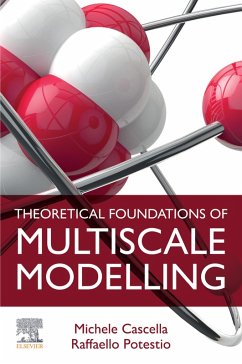Multiscale modelling approaches can provide valuable insight to researchers across a broad range of fields. At the same time, the interdisciplinary applicability of these approaches means that both new learners and experienced researchers may not have a clear understanding of the theoretical and computational fundamentals underpinning these methods. Theoretical Foundations of Multiscale Modelling aims to address this knowledge gap, providing a clear insight to the thermodynamical and statistical mechanical foundations of methods commonly employed, and highlighting the potential and limitations of each approach.Starting with an overview of the basics of statistical mechanics, the first chapters of the book illustrate the general theory of molecular modelling, the concepts and methods for the study of complex molecular systems, then progressing to cover key strategies employed to perform computational calculations and simulations. The second part of the book reviews how the most recent, cutting-edge tools of the trade are used in practice through a selection of case studies highlighting multiscale modelling, multiple resolution simulation methods, and machine-learning applications. This is also achieved by presenting case studies from recent scientific literature, highlighting the advantages of a multiscale treatment for the understanding of complex molecular phenomena.Drawing on the experience of its authors, Theoretical Foundations of Multiscale Modelling is an insightful guide for all those learning, applying, or interested in exploring multiscale modelling methods for their work. - Follows a pedagogical path, taking readers from the simplest to the most complex notions - Rigorously shows the connections between theory and modeling, providing a critical understanding of commonly used models and their level of applicability - Provides a rich list of case studies to demonstrate the application of theoretical principles in practice
Dieser Download kann aus rechtlichen Gründen nur mit Rechnungsadresse in A, B, BG, CY, CZ, D, DK, EW, E, FIN, F, GR, HR, H, IRL, I, LT, L, LR, M, NL, PL, P, R, S, SLO, SK ausgeliefert werden.









